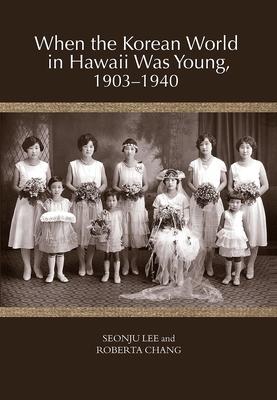When the Korean World in Hawaii Was Young tells the stories of some "1.5" and second-generation Koreans who experienced life in Hawaii or on the U.S. Mainland since childhood. Most of them were born in Hawaii of the first wave of Korean immigrants who came to Hawaii before 1906. Some tales are humorous, some sad. Their stories were captured on camcorder and voice recordings among nearly a hundred interviews taken by co-author Roberta Chang. Others have submitted written biographies. Their stories are filled with amazing personal accomplishments, family love, and unique community life.
Their precious personal memories of the tenor of community affairs during their youthful years also shed some light on the political divide pertaining to the Korean Independence Movement. The political dividing line among their parents was fierce. Most interestingly, some of the interviewees described how they became friends with their peers from the opposing families. Never again will we hear more of their stories as many of the 1.5 and older second-generation descendants have passed away or become too frail to express themselves. The collection of these interviews is interesting because the existing two Koreas resemble the early division of Koreans in America. We have not yet settled the question of why and how the division of the Mother Country developed into two Koreas. It is likely that the division began when the Korean world in Hawaii was young. Published in association with Ewha Institute for the Humanities, Ewha Womans University
Book
When the Korean World in Hawaii Was Young, 1903-1940
by Seonju Lee & Roberta Chang
(Write a Review)
Paperback
$26.39
When the Korean World in Hawaii Was Young tells the stories of some "1.5" and second-generation Koreans who experienced life in Hawaii or on the U.S. Mainland since childhood. Most of them were born in Hawaii of the first wave of Korean immigrants who came to Hawaii before 1906. Some tales are humorous, some sad. Their stories were captured on camcorder and voice recordings among nearly a hundred interviews taken by co-author Roberta Chang. Others have submitted written biographies. Their stories are filled with amazing personal accomplishments, family love, and unique community life.
Their precious personal memories of the tenor of community affairs during their youthful years also shed some light on the political divide pertaining to the Korean Independence Movement. The political dividing line among their parents was fierce. Most interestingly, some of the interviewees described how they became friends with their peers from the opposing families. Never again will we hear more of their stories as many of the 1.5 and older second-generation descendants have passed away or become too frail to express themselves. The collection of these interviews is interesting because the existing two Koreas resemble the early division of Koreans in America. We have not yet settled the question of why and how the division of the Mother Country developed into two Koreas. It is likely that the division began when the Korean world in Hawaii was young. Published in association with Ewha Institute for the Humanities, Ewha Womans UniversityPaperback
$26.39